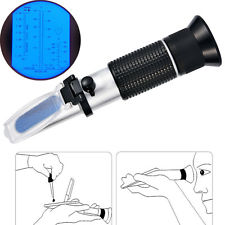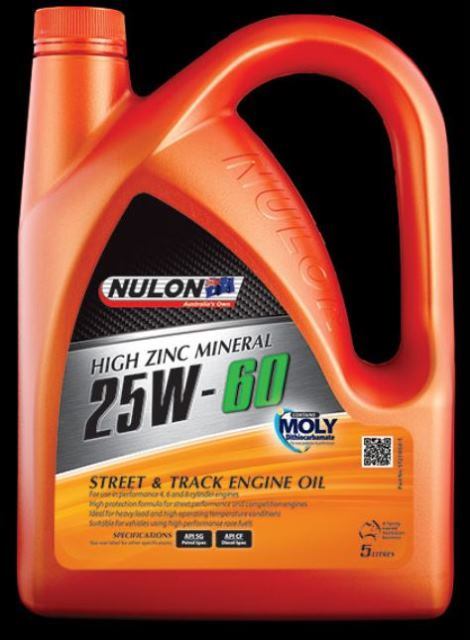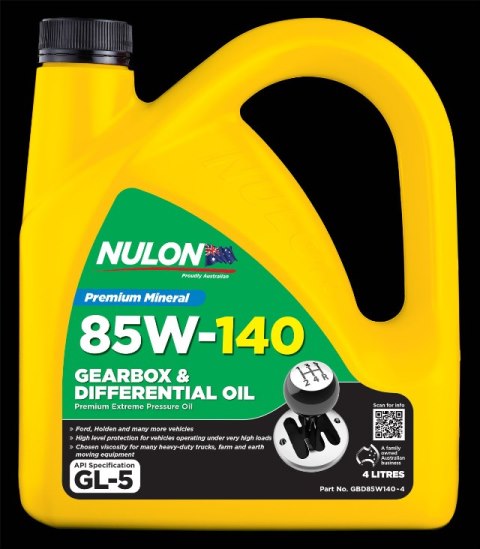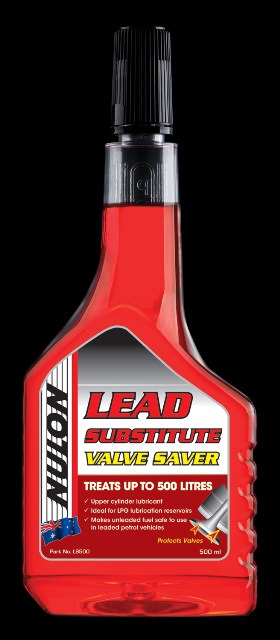| Author | Message | ||
Robert Noel Reddington Grand Master Username: bob_uk Post Number: 1058 Registered: 5-2015 |
Anti freeze lasts for 2 to 4 years and has an indefinite shelf life. But how long does it last in an engine that is not run ? | ||
David Gore Moderator Username: david_gore Post Number: 2132 Registered: 4-2003 |
Bob, The problem would be related to the degradation of the additives in the ethylene glycol concentrate once water is added to it This is a function of time and not engine usage. The glycol does not break down but the additives do reducing the corrosion inhibiting performance of the anti-freeze over time. I replace the type A antifreeze in my older vehicles every 3 years as a routine preventative maintenance procedure. | ||
Patrick Ryan Grand Master Username: patrick_r Post Number: 354 Registered: 4-2016 |
Hi Robert, There are a number of tests that can be performed either by litmus testing or a refractometer. As David rightly mentioned this only checks the condition of the Glycol or anti freeze component. It does not rate the condition of anything else relating to additives for corrosion or inhibitors etc. I change mine every 2 years regardless ok K's travelled, and as mentioned engine oil & filter every 6 months. Might be overkill, but since these engines are super sensitive I feel it is a very cheap insurance premium to pay, and as I do it myself, no labour involved, just few beers.  | ||
Robert Noel Reddington Grand Master Username: bob_uk Post Number: 1059 Registered: 5-2015 |
Note that antifreeze is never sold in tin cans. I reckon from what Dave said that its contact with metal is what degrades the additives. I wouldn't say these engines are sensitive any more than many other engines such as Jag XK. I asked the question because a mate is buying a Hillman Imp engine. The engine is in a scrap car and has 20 year old antifreeze in it. This engine if not protected WILL rot the head and block and scrap the engine. Car has stood idle for 15 years and stuck in a hedge. Animals are living in the car. I brought 20 litres of blue stuff for £36 so it's cheap enough to change every 2 years. However 3 years would be OK. The engine oil every 3000 and filter every 6000. Running LPG is kinder to engine oil. | ||
Patrick Ryan Grand Master Username: patrick_r Post Number: 363 Registered: 4-2016 |
Hi Robert, Sounds like he should look for another engine if you ask me. Agreed, I think the engine would have been better off with straight water. My 25 Chev runs a non pressurised system, so my coolant does not have any glycol in it at all, which ends up being corrosive in non pressure systems. I run all Nulon products in the Chev, including engine oil, coolant, transmission & diff oils plus Nulon grease. FYI, the coolant is a modern non glycol based used in car racing as glycol is prohibited on race tracks. I also run the same 85/140 oil in the 3 speed crash box as I do the spiral bevel diff. I also use the Nulon lead additive as well. The NSW Nulon guy lives near me, and we often take temperature readings from the massive sump of the Chev 2.8L 4 cylinder. The race type engine oil works better the hotter it gets. This was the first Chev 4 to run a water pump & belt driven fan so he is also keen on the performance of the coolant, as she can get quite hot as well The Chev has one downside in hot weather. The entire exhaust manifold is actually cast inside the head, so the cooling system has to deal with it. Car warms up super quick and of course is great in winter. It just has one large port for exhaust. Not good in traffic in summer as the internal manifold dissipates directly into the head cooling system, and the original honeycomb radiator struggles a bit, however if you keep moving its fine. Of interest, this Chev 4 had a remarkable invention added to it in 1923 that made maintenance a breeze. They called it a dip stick. Better than the earlier taps that had to be opened under the car to check levels.     | ||
ross kowalski Experienced User Username: cdfpw Post Number: 46 Registered: 11-2015 |
Patrick, Be careful with the GL-5 if you have any bronze or brass bushings in there. I know from old bikes that some had bronze bushings in the diffs and transmissions. The GL-5 corrodes it or eats it or something not so good for longevity. It was an easy decision for me as they had straight cut and bevel gears all around so I just ran thick straight weight. | ||
ross kowalski Experienced User Username: cdfpw Post Number: 47 Registered: 11-2015 |
Patrick, There is some kind of coolant that has a boil temp of like 400F or something which is run non pressurized. It was on a "Jay Leno's garage" episode on the internet. I have never tried it as it is $39USD a gallon. On the Jay Leno thing, he said the benefit was that there was no pressure so a lot less stress on classic radiators, hoses, and in some cases repaired blocks. | ||
Geoff Wootton Grand Master Username: dounraey Post Number: 1325 Registered: 5-2012 |
Hi Ross It's called Evans Waterless Coolant. It was also showcased on Wheeler Dealers. It's quite strange seeing them remove the radiator cap at engine temperature with no boil over. The disadvantage of course is cost. 4 gallons + almost the same for the flushing agent, you're looking at $300. Also, has this fluid been tested on older engines. I think the other problem is these RR engines need to be worked on a lot, quite often requiring the coolant to be drained. I know the coolant could be reused, but psychologically I would be tempted to change it again. Another $160. I looked at this a while ago and decided it was not for me. Geoff | ||
Robert Noel Reddington Grand Master Username: bob_uk Post Number: 1062 Registered: 5-2015 |
Does Evan know that you used his water? Waterless coolant. If you have a mishap whilst on the road and top up with water then the waterless bit is entirely negated and the whole system has to be flushed. The blurb goes into nuclear boiling around the exhaust port. But RR are the world leaders in piston engine cooling. They would take all this into account. So waterless is a solution for a problem I haven't got. My cars do not over heat so I am happy with 35-50% blue antifreeze. 36 nicker for 20 litres ( euro parts uk) is quite cheap. 20 litres will last me 2 and a half changes and 6 years. | ||
Patrick Ryan Grand Master Username: patrick_r Post Number: 366 Registered: 4-2016 |
Hi Ross, Thanks for the comment. Yes, this is one of the first things I spoke to the Nulon rep about. All of their transmission oils are ok for bronze & brass. The coolant you mention is interesting, I will check it out Ross. | ||
Patrick Ryan Grand Master Username: patrick_r Post Number: 367 Registered: 4-2016 |
good comments there gents. I don't know much about this stuff at all. I will have a good read. |